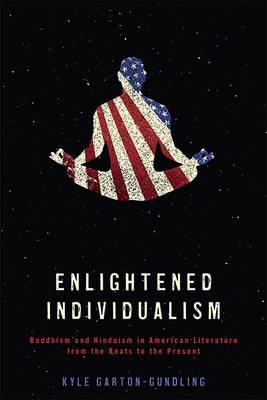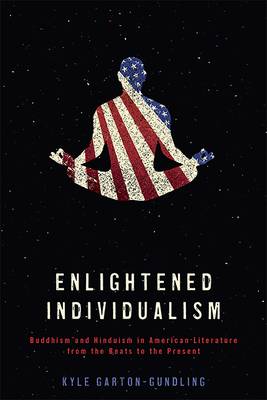
- Afhalen na 1 uur in een winkel met voorraad
- Gratis thuislevering in België vanaf € 30
- Ruim aanbod met 7 miljoen producten
- Afhalen na 1 uur in een winkel met voorraad
- Gratis thuislevering in België vanaf € 30
- Ruim aanbod met 7 miljoen producten
Zoeken
Enlightened Individualism
Buddhism and Hinduism in American Literature from the Beats to the Present
Kyle Garton-Gundling
€ 127,45
+ 254 punten
Uitvoering
Omschrijving
Buddhism and Hinduism have spread in the US largely through texts and are now recognizable facets of American literature and culture. But the US has defined itself through goal-oriented individualism, whereas Buddhism and Hinduism teach that individuality is a delusion and thus worldly desires are misguided. Given this apparent contradiction, what can Buddhist and Hindu influences offer American identities? Enlightened Individualism explores how post-1945 American writers, including Jack Kerouac, Alice Walker, and Maxine Hong Kingston, have tried to answer this question. Playing on enlightenment as both Anglo-American liberalism and Asian mysticism, this book argues that recent American literature seeks to reconcile seemingly incompatible liberal models of individual autonomy with Buddhist and Hindu ideals of transcending selfhood. This "enlightened individualism" uses Buddhist and Hindu philosophy to reframe American freedom in terms of spiritual liberation, and it also reinterprets Asian teachings through Western traditions of political activism and countercultural provocation. Garton-Gundling argues that even though works by Kerouac, Walker, Kingston, and others wrestle with issues of exoticism and appropriation, their characters are also meaningfully challenged and changed by Asian faiths. These literary adaptations, then, can help Americans reenvision individualism in a more transcendent and cosmopolitan context.
Specificaties
Betrokkenen
- Auteur(s):
- Uitgeverij:
Inhoud
- Aantal bladzijden:
- 228
- Taal:
- Engels
- Reeks:
Eigenschappen
- Productcode (EAN):
- 9780814213926
- Verschijningsdatum:
- 14/03/2019
- Uitvoering:
- Hardcover
- Formaat:
- Genaaid
- Afmetingen:
- 152 mm x 229 mm
- Gewicht:
- 503 g

Alleen bij Standaard Boekhandel
+ 254 punten op je klantenkaart van Standaard Boekhandel
Beoordelingen
We publiceren alleen reviews die voldoen aan de voorwaarden voor reviews. Bekijk onze voorwaarden voor reviews.








